Janelia is holding a series of workshops that will explore open questions, exciting challenges, and barriers in need of new tools for understanding how cells give rise to tissue-level functions. We encourage you to visit the Janelia YouTube Channel for recordings of our past workshops.
Below are a collection of 10-minute featured talks from previous workshops.
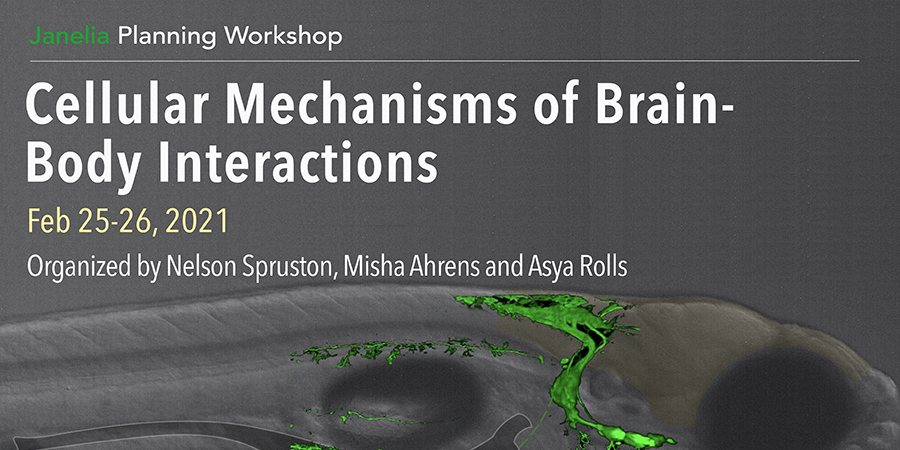
Watch Beth Stevens' talk: Interrogating neuroimmune crosstalk at the borders of the brain to understand how non-neuronal cells control how the brain interacts with the body, and how signals from the periphery are impacting circuits in the brain.
Watch Carlos Ribeiro's talk: Using metabolism as the normative framework to look at multiple organs and multiple phenomena at different scales.
Watch Allyson Sgro's talk: Identifying information processing principles of how different systems coordinate and communicate across scales and across the body using an integrative approach that combines theoretical frameworks and mathematical approaches, new sensing and control technologies for quantifying and modulating cellular communication, and computational resources to study and interpret the data.
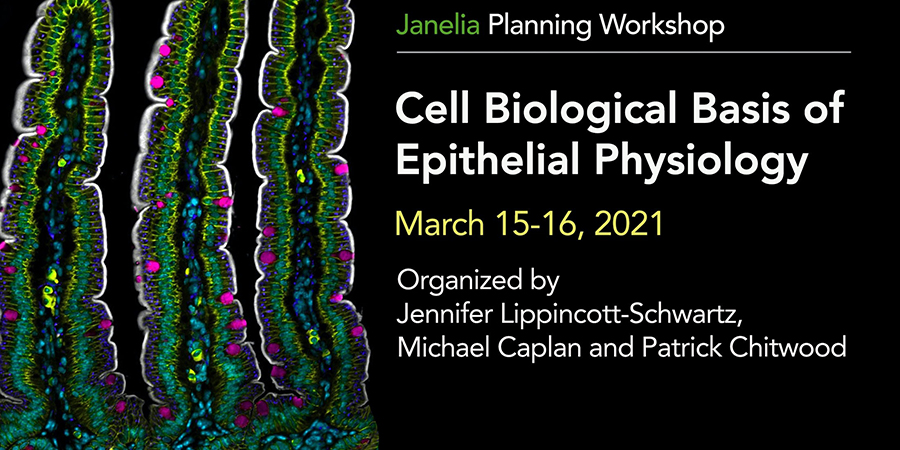
Watch Anne Eichmann's talk: Exploring the mechanisms by which stereotyped vessel pattern form and function to study and understand vascular and lymphatic development.
Watch Marino Zerial's talk: Multi-scale analysis of tissue organization and function in the context of liver morphogenesis.
Watch Thomas Lecuit's talk: Understanding organ shape and size by exploring the interplay between biochemistry (patterning and polarity information), mechanics (adhesion, contractility, hydraulics), geometry (dimension, curvature, boundary conditions) and the energetics of the processes.
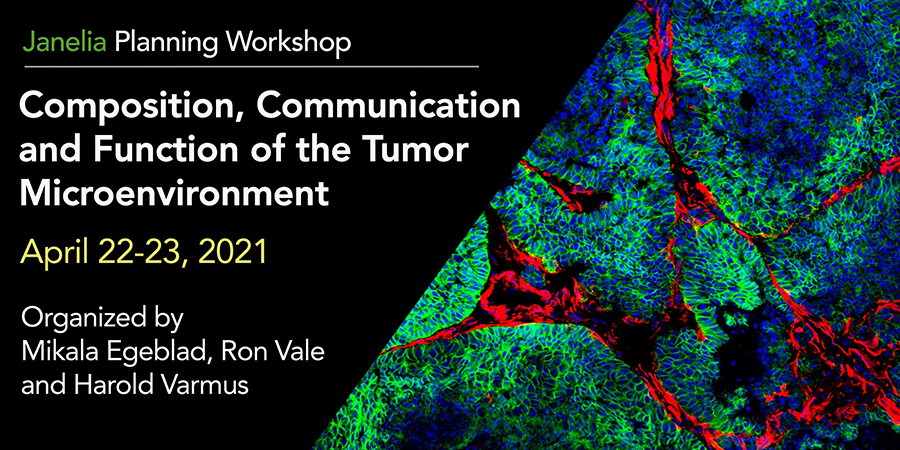
Watch Ana Luisa Correia's talk: Using mouse models, investigating how organismal physiology, with particular attention to immune components, impacts dormancy and metastasis in breast cancer.
Watch Matt Vander Heiden's talk: Using cancer cells to explore how cellular metabolism supports physiology at the cell, tissue, and organismal level, and to understand the role of the cellular environment in constraining its metabolic network.
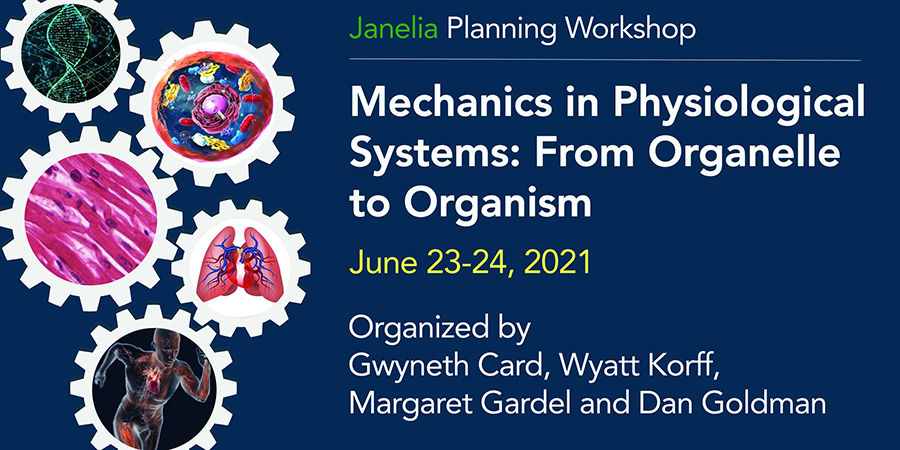
Watch Sheila Patek's talk: How the laws of physics interface with evolutionary processes to yield an integrated, multilevel diverse system by investigating mechanisms allowing extremely lightweight systems to achieve ultrafast biological movements.
Watch Medha Pathak's talk: New tools, approaches and theoretical models are required to uncover how nano-scale dynamics affect tissue-scale and lifetime-scale physiology in health and disease; Piezo1 as one example of the complex role of mechanical forces in physiology.
Watch Manu Prakash's talk: How biological matter embodies computation, and how mechanics plays a fundamental role in thinking about this. Cilia as a model for how complexity is built and monitored by biological systems.
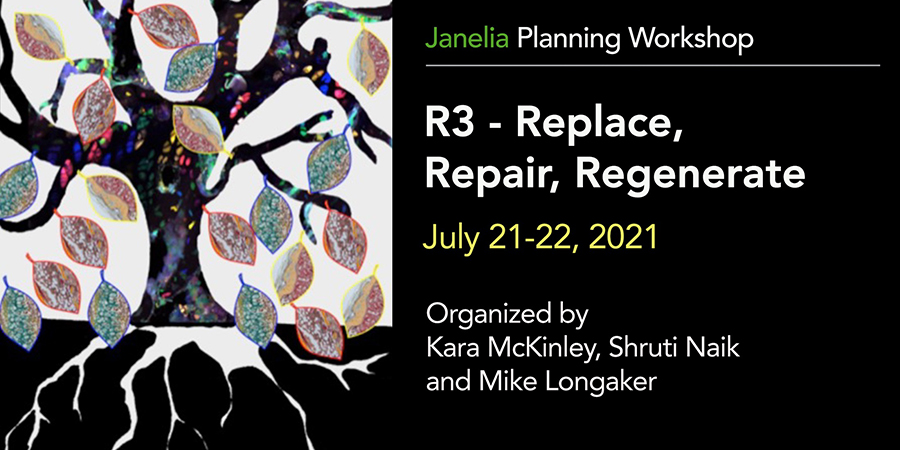
Watch Ruslan Medzhitov's talk: The importance of uncovering general principles and common themes in tissue organization, including rules of cell interactions resulting in emergent properties, rules of growth factor production and vulnerabilities in in tissue design that result in disease.
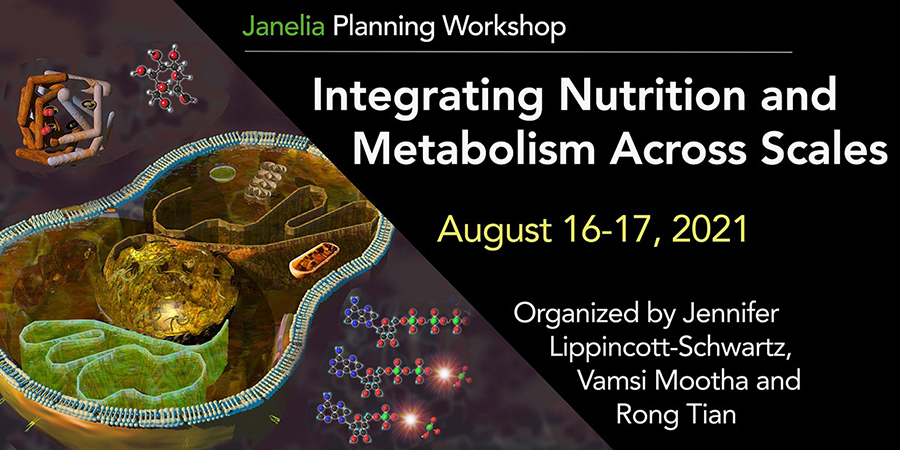
Watch Heidi McBride's talk: Addressing the challenge of how to mechanistically integrate organelle behavior into metabolism and signaling across scales by investigating the fundamental mechanisms of mitochondrial dynamics in the liver.
Watch Zolt Arany's talk: The heart as a prime example of the 4D cell physiology problem; outlines current limitations in the ability to visualize, quantify and manipulate intermediate cardiac metabolism, especially in the intact organism, and how Janelia could capitalize on its expertise to drive progress.